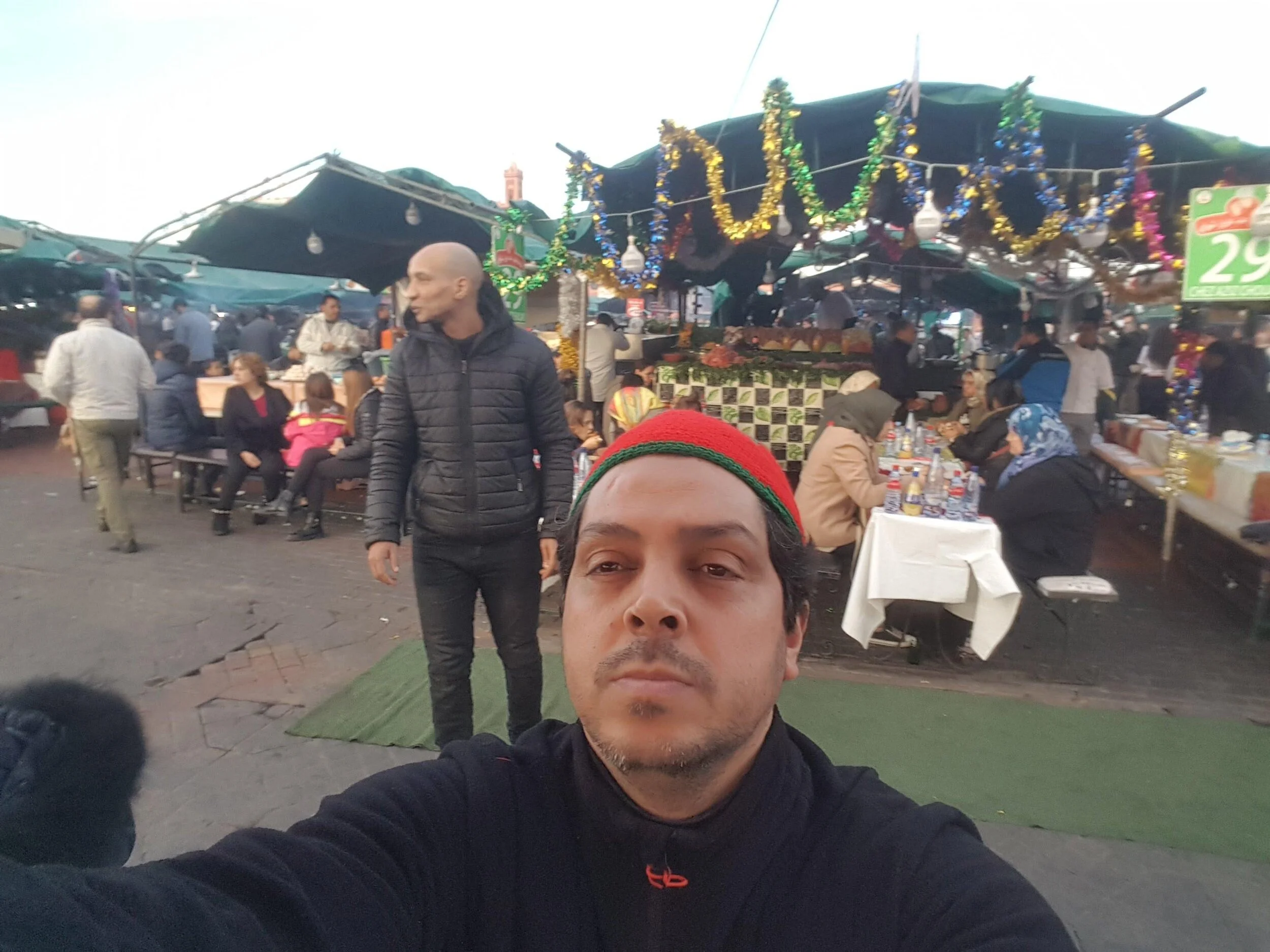"Oh Boat! My Love, Take me far from Misery: Moroccan Migration Story" by Rachid Touhtouh
Education Abroad American students would live in a country where migration is a dream and reality to ponder upon every day. In Tangier, the tomb of the greatest traveler Ibn Battuta rests majestically reminding us that Morocco as a Mediterranean country is haunted with the transnational spirit of travel, mobility and immigration.
To move or not to move, that is the question all Moroccan youth would be faced with one day in their trajectories to decide on their future. “I will migrate to Spain, and I know that I can die but I will risk it; it is better for me to die in the Ocean and not to die here vein by vein”, Younes (a fictitious name) told me this while interviewing him for an international research on Transgang[i]. Younes is a hopeless young person representing the outrage from the youth in Morocco showing that humans would choose migration if there is lack of opportunities to lead a decent life in their country of origin. The Moroccan famous song on migration would read like this:
Oh Boat, My Love,
Take me far from Misery,
I travel far from my country
As I felt humiliated,
I am so sick and fed up,
Immigration has made forget whom I am,
As I worked day and night…
To migrate to a country where better opportunities exist is the dream of all young people in Morocco. Hamid, a gay person from the city of Sale, would join his future husband in Italy to escape poverty and lack of freedom. Morocco is not only a sending country but transit and receiving one. The three processes intermingle to produce “a Moroccan Migration history”.
Let’s look at the world first; despite the unexpected moment of COVID19 where immobility curbed migration, international migrants make 281 million across the world according to the latest IMO 2020 report[ii]. Although the percentage of international migrants is only 3.6% of the population, migrants changed the face of countries where they chose to settle, impacting demography, culture, economy and politics. According to the same report, remittances evolved from $ 126 billion in 2000 to $ 717 billion in 2019. If we add refugees to the migration picture, the number 82.4 million humans would make the migration condition difficult and dangerous for forcibly displaced people according to the latest report of the UNCHR[iii].
Let’s zoom in on the Mediterranean; the Mediterranean Corridor is the deadliest migratory crossing in the world now according to the UNCHR statistics.
The Mediterranean is haunted with crossings. Human mobility has changed the face of the world throughout history and across civilizations. Migration in Morocco is part of the imaginary and social collective conscience visible in songs, proverbs, State management and social gatherings; it is part of the culture of Moroccans throughout history; it decides the makeup of Moroccans in present day and certainly would change the cultural fabric in the near and in the long run.
Morocco as a Mediterranean country has known modern international migration from the 40’s; Morocco is a sending country with more than 5 million Moroccan immigrants across the five continents with majority living in Western Europe. Moroccan do not only live in western Europe but all over the world, see the report: https://www.fh2mre.ma/marocains-de-lexterieur-2017/wp-content/uploads/2020/03/Livre-marocain-de-l-exterieur-2017.pdf.
In Morocco, we receive sub-Saharan immigrants and refugees who either chose to stay in Morocco or wait for the opportunity to cross to Europe.
With all these international and national dynamics, Morocco was faced with managing its migration experience. The law on Migration and Exile drafted in 2013 is one of the recent answers to the flow of humans to Morocco; the goal is to regularize the presence of “foreigners”, mainly from Sub-Saharan countries who transit or stay in Morocco. Tens of NGOs, GOSs, a ministry and a foundation all founded to manage Moroccans who live outside Morocco and sent about MAD 93 billion as remittances. “Marhaba Operation[iv]” (literally means Welcome) campaign every year mobilizes all the government human resources to welcome Moroccans returning to spend the summer vacation in their home country. Morocco State has always encouraged migration to create wealth and get rid of untapped human capital.
Mohamed (fictitious name) told me, “When we want to migrate illegally, they imprison us but if we succeed and cross, they welcome us”. Among the 6 million youth aging between 15 and 24, about 28% of youth in Morocco are NEETS, meaning unemployed, not in school and lack any training. The 1,7 million youth NEETS is a stock of potential migrants. Morocco is obliged to find solutions to these youth because of its bilateral relationships with the EU and USA to stop Migration, fight human trafficking and transnational terrorism.
[i] The link to the research project: https://www.upf.edu/web/transgang.
[ii] The link to the report: https://publications.iom.int/system/files/pdf/wmr_2020.pdf.
[iii] Find the link to the report: https://www.unhcr.org/60b638e37/unhcr-global-trends-2020.
[iv] Link to Mohamed V Foundation who manages” Marhaba Operation” every year: https://www.fm5.ma/en/operations/marhaba-operation
Dr. Rachid Touhouh is the Academic Coordinator at Amideast Education Abroad in Morocco.






